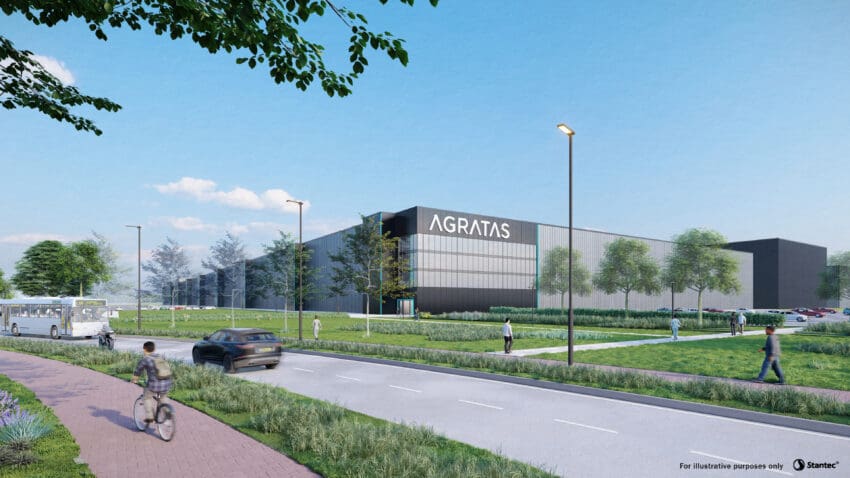New £4bn gigafactory confirmed for Somerset site
Britain’s biggest EV battery factory will be built in Somerset, it has been confirmed.
Agratas, the firm behind the proposed “gigafactory” announced today (28 February) that it has acquired land on the Gravity Smart Campus near Bridgwater, Somerset for the new £4 billion plant. Preliminary works have already begun, with construction expected to start in spring.
The planned development has been an open secret since Agratas’s parent company, Tata Group announced last year that it would build a battery plant in the UK. However, this is the first time Agratas has officially confirmed the factory will be constructed on the former MoD site near Bridgewater.
When completed, the 40GWh factory will be the biggest battery factory in the country and by the early 2030s will contribute almost half of the UK automotive sector’s projected battery requirements. The first batteries are expected to come off the production line in 2026.
Tata Group, which owns JLR, secured a rumoured £500 million in UK government subsidies to build the factory in the UK, which helped swing the decision against another site in Spain. When completed it will provide batteries for the next generation of electric Jaguars and EV models from sister brand Land Rover. It will also supply other brands in the Tata Group and make batteries for electric motorbikes and scooters, as well as commercial energy storage systems.
The new factory is expected to create around 4,000 jobs, with thousands more in support industries around the country.
Tom Flack, CEO of Agratas, said: “Our multi-billion-pound investment will bring state-of-the-art technology to Somerset, helping to supercharge Britain’s transition to electric mobility whilst creating thousands of jobs in the process.
“We care deeply about the communities we operate in, so it’s imperative to us that we work with, and listen to, our new neighbours as we build our factory in Somerset.
“That’s why we’ll be holding an event for local residents very soon, so we can share more about our plans and introduce our team to the community.”
The move is a welcome boost to the UK EV industry, especially in the wake of the collapse of the Britishvolt factory plan. Currently, the country has only one battery plant, at Nissan’s Sunderland site, with another under construction at the same location.
The need for locally produced batteries is a growing concern for the EV industry, which currently sources most of its batteries from China.
EU rules of origin tariffs require a certain proportion of all new vehicle components to originate from the country where the car is built or exporters will face hefty penalties. Although their introduction has been pushed back until 2026, the tariffs still posed a major headache for car makers importing to and exporting from the UK. The SMMT estimates that without changes, the tariffs could add £3,400 to the price of an EV in the UK, as well as threatening the viability of building EVs in Britain for export.
Alongside JLR’s planned models, Nissan and MINI produce electric cars in the UK for export to Europe. Nissan’s Leaf is built in Sunderland the new Mini Cooper and Aceman are being built in Oxford following a £600 million commitment from parent company BMW.
